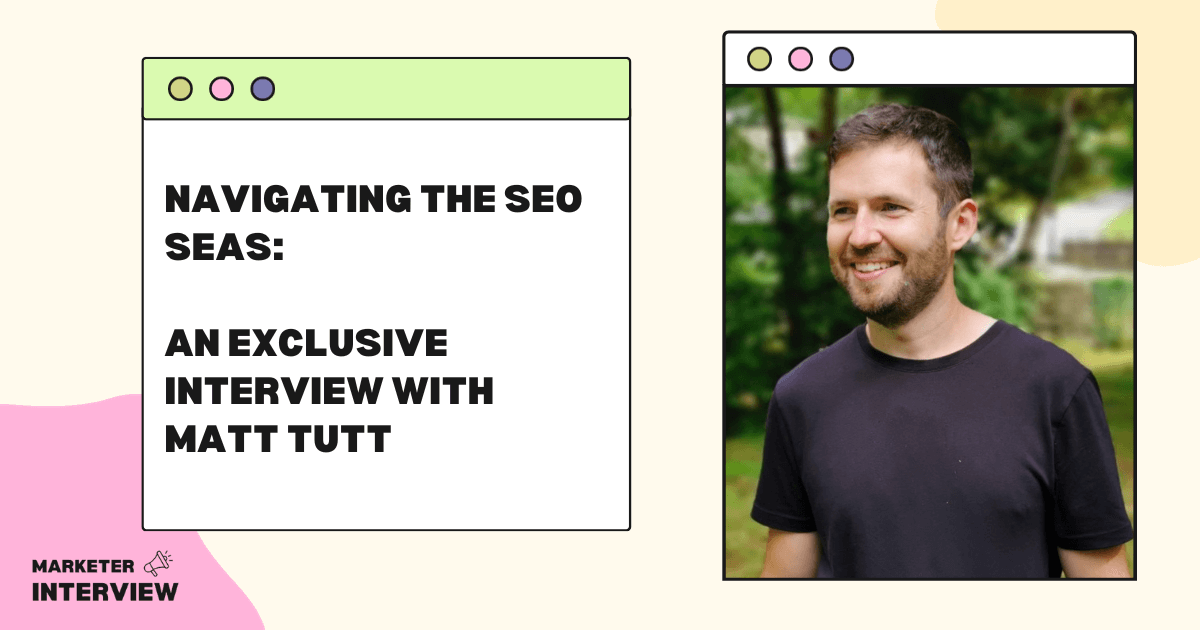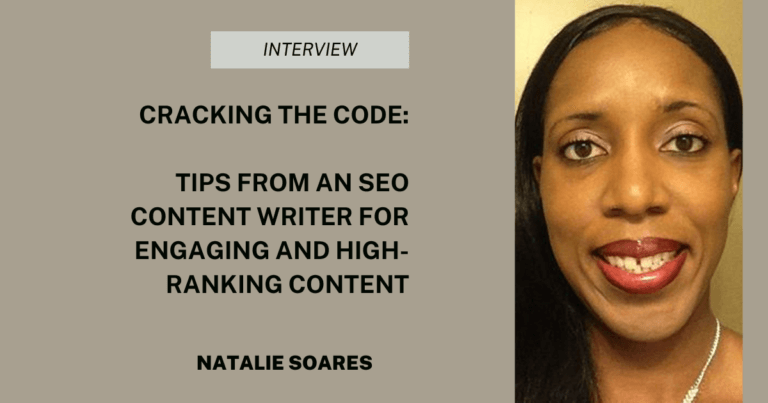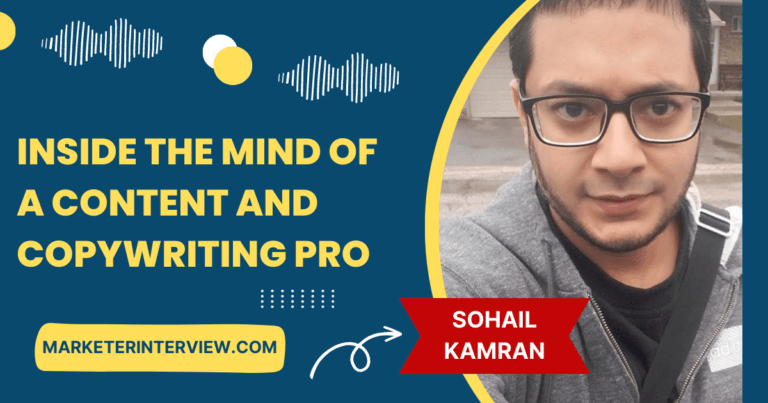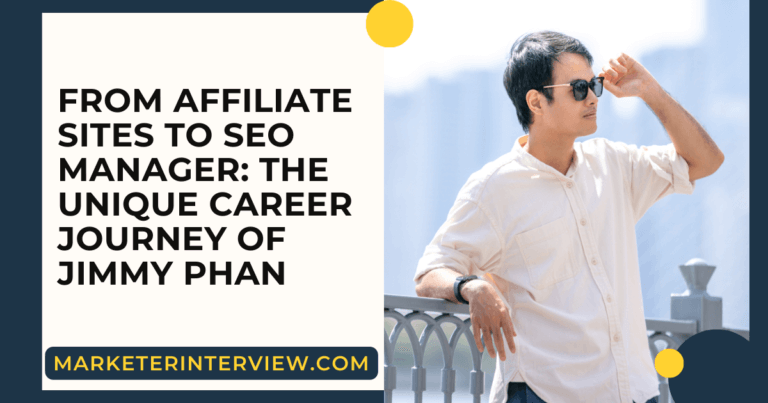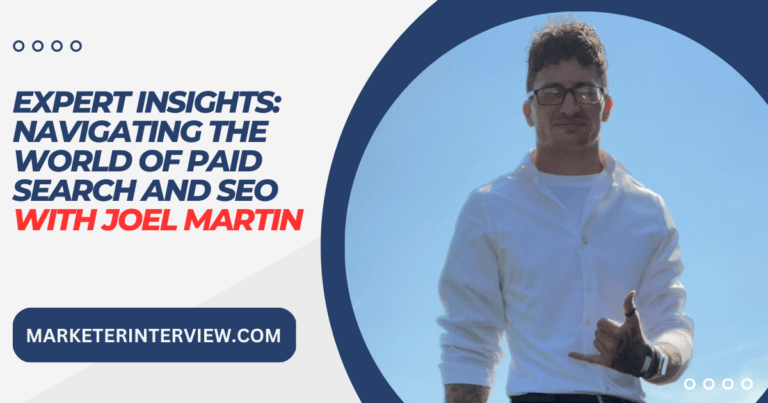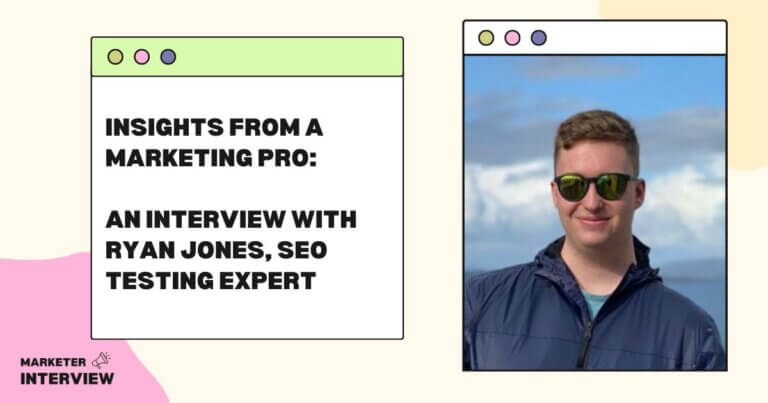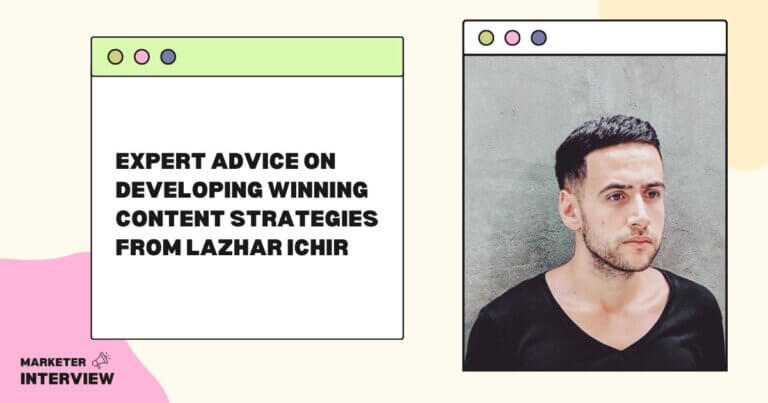Navigating the SEO Seas: An Exclusive Interview with Matt Tutt
Welcome to another insightful edition of Marketer Interview!
We have the privilege of sitting down with Matt Tutt, an accomplished SEO Consultant from the United Kingdom.
Matt’s expertise spans various digital marketing practices, from technical SEO wizardry and achieving first-page rankings in fiercely competitive industries to implementing content strategies that drive organic traffic and lead.
Today, he’s here to share his knowledge and experiences, particularly about his career pivot towards working with purpose-driven businesses.
Contents
- 1 Can you share the story of how you initially ventured into the field of digital marketing and what drew you to specialize in SEO?
- 2 Your career has seen impressive growth. Could you describe a pivotal turning point or achievement in your professional journey?
- 3 Focusing on purpose-driven businesses is intriguing. What inspired you to pivot your career in this direction, and how has this specialization influenced your approach to digital marketing?
- 4 In your extensive experience, what are some common misconceptions or myths about SEO that you’ve encountered, and how would you debunk them?
- 5 Achieving first-page rankings in highly competitive industries is no small feat. Could you walk us through your process and strategies for accomplishing this?
- 6 Content strategy is vital in today’s digital landscape. How do you approach developing content strategies that drive organic traffic and leads, particularly in B2B markets?
- 7 As a Google Certified Partner, what key insights have you gained from managing large-budget PPC campaigns on Google and Bing that could benefit marketers?
- 8 Google Analytics plays a crucial role in understanding user behavior. Can you share some best practices for auditing tracking implementations and deriving actionable insights from data?
- 9 Conversion Rate Optimization (CRO) is an essential aspect of online success. What strategic initiatives have you employed to increase e-commerce conversion rates effectively?
- 10 Your contributions to industry publications highlight your expertise. How do you stay updated with the ever-evolving world of SEO, and what advice would you offer to marketers looking to do the same?
- 11 In today’s digital marketing landscape, tools and software are pivotal. What are some of your favorite tools and software as an SEO consultant, and how do they enhance your work?
Sure! So, like many other people in this space, I fell into it. It was never a lifelong dream to become an SEO specialist (like many other people, I’d always wanted to become a professional footballer!).
I got into it after building my websites from my bedroom using Notepad – awful websites that would sting your eyes! I got better and created a website about making money online. This was ironic as it made me quite a bit of money, as I sold it privately. I optimized it to rank at the top of Google for queries like “make money online” and other valuable terms. After selling the site, and a few other less successful sites were created, I decided to intern at an agency in Ireland, where I formally learned about PPC (Google Ads) and more SEO.
After a few years here, where I got a full-time job, I returned to the UK and continued with the self-employed lifestyle.
Your career has seen impressive growth. Could you describe a pivotal turning point or achievement in your professional journey?
There wasn’t one in professional terms, but the most valuable thing I did was take a chance when I was in a bit of a rut. I spent much time working from home (in my bedroom at my parents’ house) and wanted a more proper career.
Going for the internship may have appeared to be a giant step backward, but it helped me in many ways – I learned a lot at the agency, and it helped boost my confidence, too. It made me realize I could offer this service and help smaller independent businesses, cutting out the agency and working directly with the client. To clarify, I didn’t poach clients or try to take work away from the agency; instead, I wanted to focus on helping smaller businesses.
Focusing on purpose-driven businesses is intriguing. What inspired you to pivot your career in this direction, and how has this specialization influenced your approach to digital marketing?
I’ve always been really into environmental matters, and I studied Marine Conservation at college many years ago. I didn’t progress with a career in that field, but environmental issues have always stuck with me.
It’s a terrifying time in that regard, but instead of dwelling on this, I figured, what if I could use my digital marketing skills to try and help elevate any charity or business in this space that is doing good? It’s been slow progress, and I’m still trying to get myself out there, but I’m hopeful I can find some worthwhile causes to help.
This might be cliche at this point, but I’m not motivated by money (at least not entirely!). Instead, my work had a vital purpose behind it. If you can find something you’re passionate about and figure out how to shape your work around it, you’ll be on to a winner.
In your extensive experience, what are some common misconceptions or myths about SEO that you’ve encountered, and how would you debunk them?
There are so many! I recently heard from a client about their fear of having duplicate content on their website. This is quite a common one and is probably rooted in some truth (if you have content across every page that is 99% duplicated, you’ll struggle with organic visibility).
Still, often, it is expected to have some duplicate content. Often, the myths may have some truth, but every situation is different – duplicate content might be more prevalent on a vast e-commerce site. Still, a smaller site owned by a small service provider should have less overlap and would be hurt if it had a similar percentage of duplicated content.
Another popular one is that you need to have lots of links to rank, and yes, while that’s true to a certain degree, if this leads you to try to link building, you actively may end up doing some damage and getting penalized by Google. Because myths are so commonplace, and thanks to social media, these can easily get shared and amplified, you’ll want to ensure you’re speaking with a trusted SEO consultant or agency.
Achieving first-page rankings in highly competitive industries is no small feat. Could you walk us through your process and strategies for accomplishing this?
This has become more challenging over the years, especially if you are a smaller business without the associated brand and clout that follows it. That said, if you focus on ensuring your content is the best – and most importantly, memorable – then you’ll be on the right track. A pet peeve of mine is the idea that to rank well.
You only need to reverse engineer what the top-ranking sites in that sector are doing. If all you’re doing is copying them, there’s little to differentiate you from the others. Being different is critical, especially when hitting the age of AI content. How do you make your brand stand out when content is no longer a barrier to anyone else – indeed, the only way is by doing things differently from the rest.
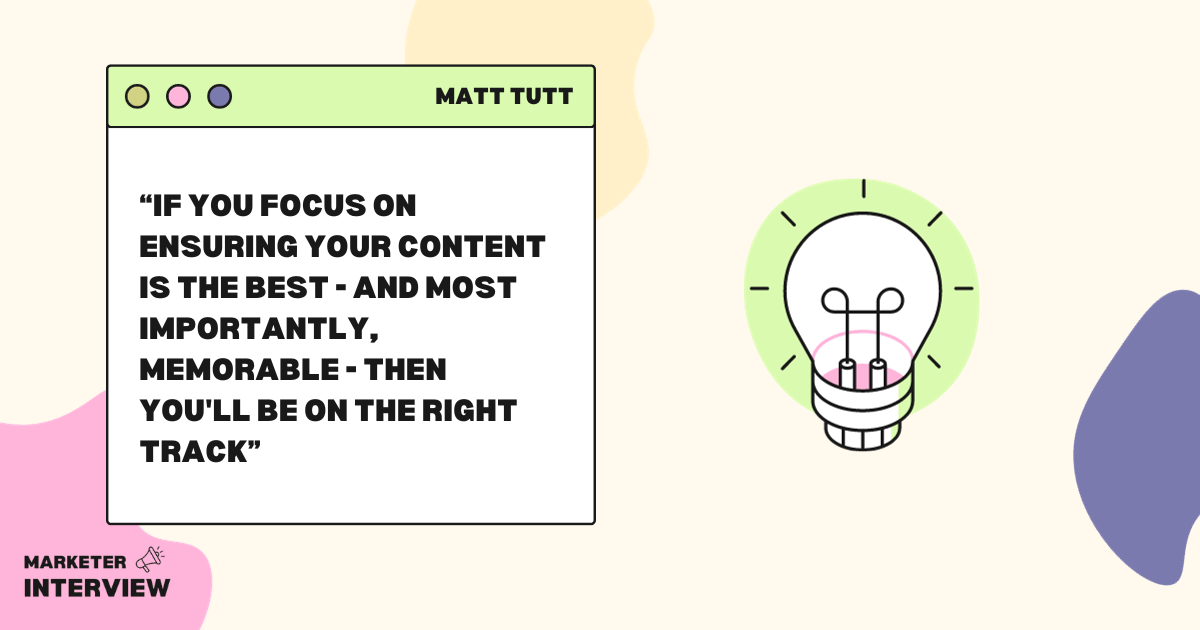
Content strategy is vital in today’s digital landscape. How do you approach developing content strategies that drive organic traffic and leads, particularly in B2B markets?
If it’s an established market, I will see what the leading competitors are doing and try and learn from it. I won’t copy it, but doing your background research here is essential. I invest time and thought into strategies that should be evergreen and consistent.
I prefer to take the long approach vs look for short-term growth hacks. Ultimately, a lot of this comes from a psychological viewpoint – you need to figure out what your target audience wants and then find a way to give it to them (ideally capturing their info in the process!).
Partnerships can go a long way, too – finding other businesses or organizations with overlapping interests and seeing how you can help each other.
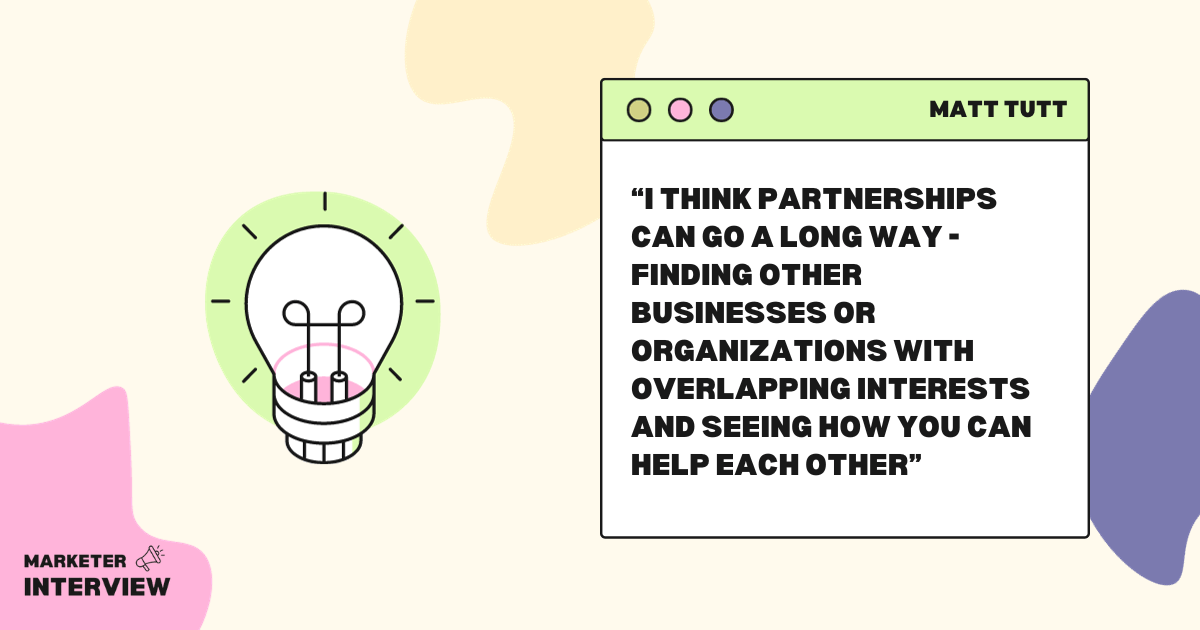
As a Google Certified Partner, what key insights have you gained from managing large-budget PPC campaigns on Google and Bing that could benefit marketers?
This is probably no big secret, but you do need to test and test again. Don’t just assume that because some strategy worked for one client, it’ll work the same for another, even within the same industry. There have been significant changes to PPC in recent years, including new campaign types like Performance Max.
These are still a bit of a black box, and it’s been a bit frightening to leave things in the hands of Google to optimize – when you know they’re keen for you to spend as much as possible – but ultimately, you do still need to try these things out and to keep testing.
I’ve had little chance to play with GA4, the latest version of Analytics (and everyone’s favorite tracking tool!), and I miss Universal Analytics. One common issue I’ve found from the GA4 accounts I’ve looked at is that their event and conversion tracking isn’t entirely set up right, so any previous “Goals” from Universal Analytics may not have been marked as Conversions within GA4. So, you may be in the dark about whether people are converting on the site.
A common issue I used to spot on Universal Analytics is the bounce rate metric needing to be more balanced, abnormally low (around 10%), often due to the tracking script double-firing on the page. Simple things like this can make analyzing data quite tricky, so having someone give an account a quick check now and then is helpful.
Conversion Rate Optimization (CRO) is an essential aspect of online success. What strategic initiatives have you employed to increase e-commerce conversion rates effectively?
It again comes back to psychology and giving the user what they want. We’ve had some success offering technical whitepapers for one client if they drop their email details.
This sounds obvious, but capturing lead data this way is less intrusive than asking them to reach out for help – we can then utilize their email and try to share more valuable bits slowly, building up trust with the user.
Your contributions to industry publications highlight your expertise. How do you stay updated with the ever-evolving world of SEO, and what advice would you offer to marketers looking to do the same?
I’m pretty active on Twitter/X, although I can’t say I’m proud that I’m still on the platform. It is a decent source of SEO information and an excellent way to keep tabs on the industry.
There are some great SEO sites out there, and we’re lucky to have the likes of Barry Schwartz (Rusty Brick) blogging regularly. And Google’s search team has also been a big help. Find a social channel you feel comfortable with or a great Slack SEO community. There are lots out there, but it will be down to your preference and what you want to get out of it.
In today’s digital marketing landscape, tools and software are pivotal. What are some of your favorite tools and software as an SEO consultant, and how do they enhance your work?
I couldn’t go without Ahrefs – I know they’ve been in the firing line recently for some updates to the payment plans, but I still find it the best software for backlink analysis. They’re swift to pick up when new links are landed. I like to use this for backlinks and keyword research.
I’ll use Screaming Frog for technical site audits to crawl and analyze a site and Sitebulb if the site requires something different. In my early days, I suffered with “all the gear and no idea” – I wanted to pay for every tool, as I thought I needed them and they’d improve my job.
Ultimately, all you need is a Search Console and a decent brain (lots of SEO is common sense), but if I could have only one tool, it would be Ahrefs, followed very closely by Screaming Frog.
